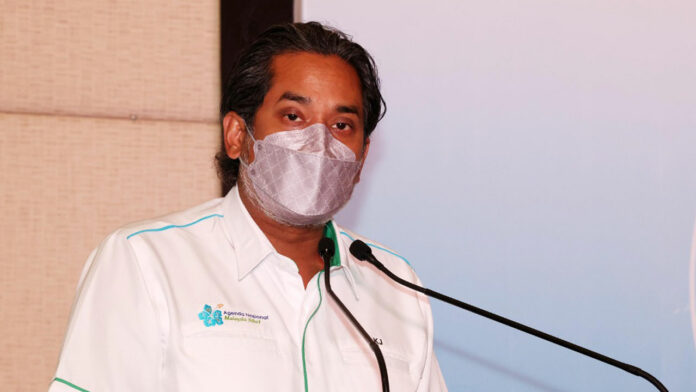SEPANG, March 26 — The Ministry of Health (MOH) can take legal action against individuals who falsify antigen rapid test kit (RTK) results in the MySejahtera application, said its Minister Khairy Jamaluddin.
Speaking to the media after the national level launch of the MyCHAMPION programme, Khairy said reporting fake COVID-19 screening results was an irresponsible act.
He said employers could report to the MOH if they found that their employees had done so.
“So don’t let it reach a point where we are forced to take legal action for false reporting in MySejahtera, which is an offence,” he said here today.
He said the government had allowed people to report their COVID-19 test results in MySejahtera without undergoing a professional screening in preparation for the ‘Transition to Endemic’ phase.
“When we enter the transition phase, we have to rely a lot on community solidarity and self-responsibility. The government cannot be checking, enforcing and issuing fines for everything.
“So I appeal to Malaysians when we have given the responsibility to you to do a self-test, you must be honest. Do not report fake positive results to escape work,” he said.
Meanwhile, Khairy said the MOH did not share MySejahtera user data with any third party.
“Currently, MySejahtera is owned by the MOH including all data in the application. There is no data security issue because it is handled by the MOH, and the data cannot be used for other purposes other than monitoring the COVID-19 pandemic,” he said.
In another development, Khairy said Malaysia was likely to conduct a study on whether plastic was present in the human blood system as reported by scientists from the Netherlands.
“I was surprised when I read the findings from scientists in the Netherlands. I think I will raise this matter with the Malaysian Institute of Health Research, maybe we can also do the study here to see if the plastic has entered our blood system,” he said.
Yesterday, the media reported a new study revealing that microplastics or small pieces of plastic less than five millimetres in diameter, were present in human blood.
In the study, scientists in the Netherlands took blood samples from 22 healthy adult donors at random and analysis found that 17 of the volunteers had microplastics in their blood.
Microplastics have been found in the brain, intestines, placenta of unborn babies and the faeces of adults and infants, but this is the first time they have been found in human blood.



















